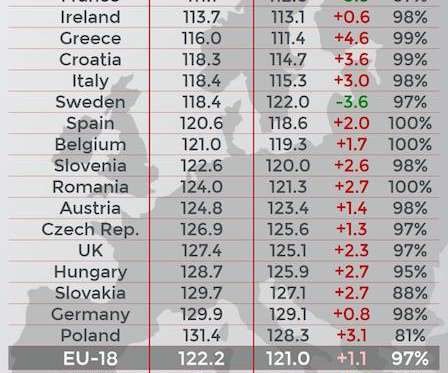JATO: new car CO2 emissions rise for the first time in a decade in Europe; diesel down, gasoline up, SUVs up
Green Car Congress
MARCH 6, 2018
This rise in average CO 2 emissions correlates with a decrease in demand for diesel cars across Europe—which produce lower CO 2 emissions than gasoline cars—and the rising popularity of SUVs, which emit higher average CO 2 emissions of 133.0 g/km, compared to gasoline cars, which had an average of 123.4
















Let's personalize your content